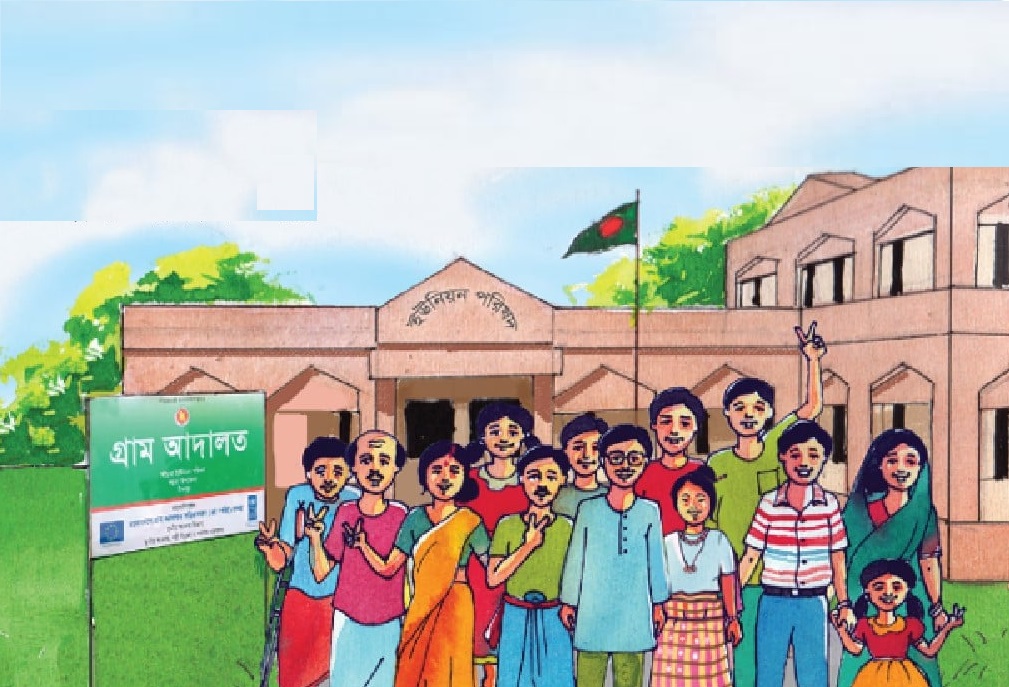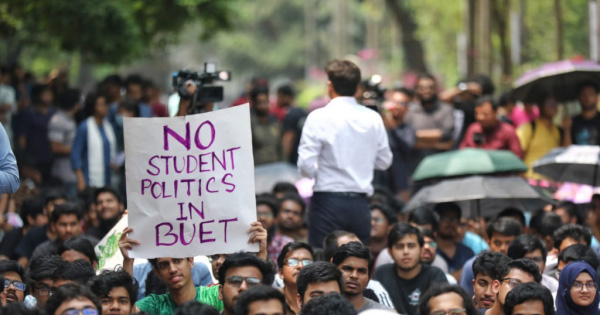Bangladesh’s job market is facing a crisis. Rising operational costs, fueled by inflation and global economic disruptions, have resulted in widespread layoffs, limited job opportunities, and an overall shrinking employment landscape. This issue, compounded by external shocks such as the Russia-Ukraine war and the prolonged impacts of the COVID-19 pandemic, has been exacerbated by the government’s inability to maintain a stable and proportionate job market compared to its regional peers like India, Pakistan, and Vietnam.
Businesses in Bangladesh are buckling under rising costs, with fuel price hikes, increasing raw material costs, and disrupted supply chains driving many companies to slash jobs. According to government data, inflation in July 2023 climbed to 7.48%, up from 5.36% in the same month last year, with food inflation reaching a worrying 8.19%. These soaring costs have left employers no choice but to cut jobs or reduce employee benefits to stay afloat. This not only impacts the present workforce but also discourages future job creation, as companies hesitate to expand amid such uncertainty. While these challenges are not unique to Bangladesh, the government’s inability to cushion the job market in the face of global economic pressures sets it apart from its regional counterparts. Rather than implementing strategies to alleviate business costs and protect employment, the Bangladeshi government has failed to respond adequately, leaving businesses and workers in a precarious position.
When comparing salaries across South Asia and Southeast Asia, Bangladesh ranks 20th in average monthly salary, with a meager $299, trailing behind India, Pakistan, and Vietnam. According to data from Numbeo.com and Salaryexplorer.com, India ranks 18th, Pakistan 17th, and Vietnam 14th, with average monthly salaries significantly higher. In contrast, countries like Singapore boast an impressive $6,223 monthly salary, while even countries with similar economic challenges, such as Vietnam, offer a more competitive wage of around $407. This wage disparity highlights a critical issue: Bangladesh’s workforce is underpaid and undervalued, particularly when compared to its neighbors. The government has failed to implement policies that foster a competitive labor market, and as a result, Bangladesh risks losing its workforce to countries offering better pay and benefits. The country’s inability to raise wages and create a more attractive job market means that skilled workers may increasingly seek opportunities abroad, exacerbating the already critical “brain drain.”
Bangladesh’s economic woes stem from both domestic mismanagement and global market fluctuations. The COVID-19 pandemic, coupled with the Russia-Ukraine war, has disrupted international supply chains and led to skyrocketing energy and raw material prices. However, the government’s failure to mitigate these effects has worsened the situation. While other nations facing similar global challenges have managed to stabilize their economies and maintain a proportionate job market, Bangladesh continues to fall behind. According to GlobalData, a leading data and analytics company, the job market across various sectors—including retail, pharma, oil and gas, and technology—has seen a steady decline in available jobs in Bangladesh, with active job listings decreasing by 5% in August 2022. This decrease in available positions underscores a shrinking job market that shows little sign of recovery.
The Bangladeshi government’s inability to maintain a proportionate job market is a blatant policy failure. Rather than enacting measures to protect jobs and stabilize industries, the government has allowed operating costs to spiral out of control, with businesses passing these costs onto employees through layoffs and benefit cuts. In contrast, countries like India and Vietnam have introduced policies aimed at shielding their economies from the worst of global market disruptions, ensuring that jobs are preserved and new opportunities continue to arise. India, for example, has leveraged its large domestic market and diversified export base to absorb economic shocks, while Vietnam has aggressively positioned itself as an alternative manufacturing hub amid global supply chain disruptions. Both countries have outpaced Bangladesh in wage growth and job creation, proving that sound economic policies can protect employment even in challenging global conditions.
#### A Path Forward: What Needs to Be Done
Bangladesh’s government must urgently address the structural issues plaguing its job market. Several key actions could help mitigate the crisis and restore stability:
1. **Stabilizing Business Costs**: The government must offer businesses relief from rising operational costs, such as tax breaks, subsidies for fuel, or grants for technology upgrades to offset increased production costs.
2. **Promoting Wage Growth**: Competitive wages are essential to retaining and attracting talent. The government must implement policies that encourage wage growth and ensure that the country’s workforce is not left behind by its regional peers.
3. **Job Protection Programs**: In the face of global economic disruptions, Bangladesh should introduce job protection programs, similar to those implemented in other countries, where companies receive government assistance to retain employees during tough economic periods.
4. **Diversifying the Economy**: The country must reduce its reliance on a few key industries, such as textiles, by promoting diversification in sectors like technology, pharmaceuticals, and renewable energy. This will create more stable employment opportunities and reduce vulnerability to global market shifts.
5. **Encouraging Foreign Investment**: By making the country more attractive to foreign investors, particularly in sectors with high job creation potential, the government can help grow the job market and raise wages in line with regional competitors.
Conclusion
Bangladesh’s shrinking job market and stagnant wages are symptoms of broader economic mismanagement. While the country faces significant global challenges, its inability to maintain a proportionate and competitive job market compared to its regional peers reflects a failure of governance and policy. Without urgent reforms to stabilize the job market and raise wages, Bangladesh risks falling further behind in the regional race for economic stability and prosperity. The government must act swiftly to protect jobs, attract investment, and ensure that the country’s workforce is not left at the bottom of the regional wage scale.







